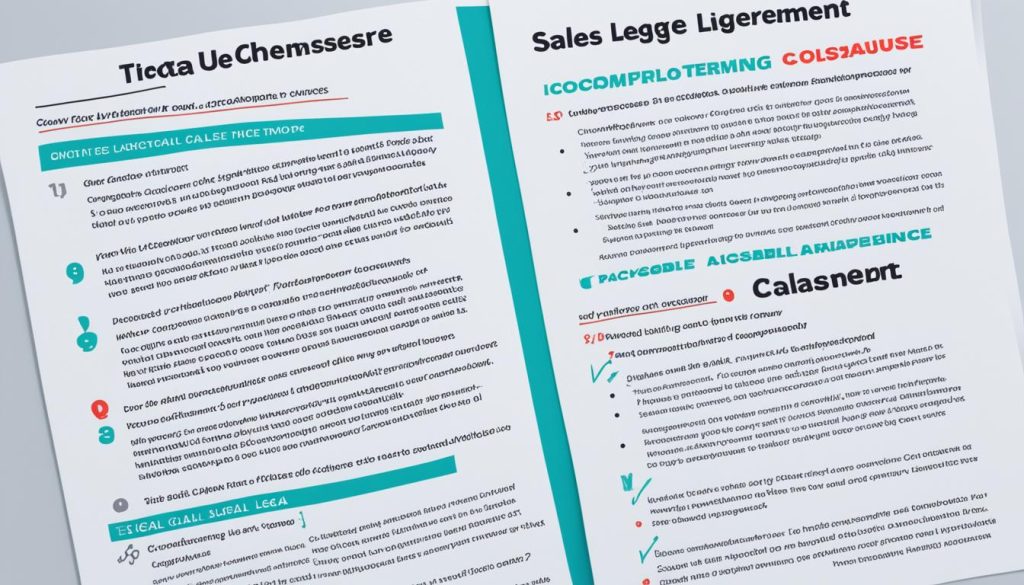Deciding to sell your UK business marks the end of a chapter filled with hard work and dedication. By following the right steps, you can make this journey smooth. This isn’t just about selling; it’s a well-planned move that needs careful planning and a deep market understanding.
People sell their businesses for many reasons, like retirement or chasing new dreams. But the aim is always to make the changeover smooth and protect your business’s legacy. We’re here to guide you through this process. You’ll learn how to leave your business in good hands, backed by expert advice.
Understanding the Process of Selling Your Business

Selling a business in the UK means knowing why you’re selling, figuring out its value, and finding the right buyer. Each step is vital for owners ready to move on from their business.
Reasons for Selling
Selling can be for reasons like retirement or seeking new adventures. Knowing why you’re selling is key. It helps make the sale match your goals and gets you ready for what’s next.
Valuing Your Business
Figuring out what your business is worth is essential. You can use methods like looking at assets, earnings, or how much it would cost to start a similar business. This valuation helps everyone understand the business’s worth in the market.
Finding the Right Buyer
The search for a buyer is a big deal. You can use industry contacts, online platforms, or a broker to help. Getting a good offer from someone who values your business’s ethos is crucial for its future.
Knowing these steps is important for a successful sale. It honours the effort and time you’ve put into your business.
Preparation for Sale: Getting Your Affairs in Order

When you’re selling a business in the UK, you need to get everything in order. This means being very careful with how you set things up for the market. You should make sure everything is clear and accountable to attract buyers. This includes three key steps: getting your financial records straight, checking how your business is doing, and following all legal rules during the sale.
Financial Documentation
Having all your financial documents ready is very important. This helps potential buyers see how healthy your business is financially. Accurate financial statements, tax returns, and other reports are key. They give buyers the confidence they need in your business’s financial health.
- Profit and Loss Statements – A testament to your business’s profitability over time
- Balance Sheets – Reflecting the stability and financial depth of your enterprise
- Cash Flow Statements – An indicator of how effectively the business manages liquidity
Business Performance Analysis
Looking closely at how your business has done in the past and is doing now is key. This shows your business’s growth and potential, which is important for a strong sale. Things like how happy your customers are, how well you stand in the market, and how efficient your operations are, all matter a lot.
- Review of sales trends and revenue growth to illustrate market demand
- Evaluation of customer base diversity and retention rates
- Analysis of cost efficiency and scalability potential
Legal Considerations
Legal issues are critical when selling a business. You must review all contracts, licences, and regulatory compliance carefully. Protecting your intellectual property and making sure all employment law obligations are met is essential. This helps the business transfer smoothly and keeps the business running well after the sale.
- Contractual Agreements – Reviewing supplier, customer, and lease agreements
- Compliance Audits – Confirming adherence to industry regulations and standards
- Intellectual Property – Protecting patents, trademarks, and proprietary information
If you manage these aspects well during the preparation phase, it can make the sale go smoothly. This leads to a successful change of ownership that is good for both the buyer and seller. With careful preparation and focus on details, entrepreneurs can feel confident during this complicated process. This ensures the business is in a good position for sale.
Marketing Your Business for Sale

Marketing your business for sale requires smart strategies. It’s about drawing in buyers while keeping secrets safe. You need a plan that finds the middle ground between getting attention and staying discreet. Here are essential methods to follow:
- Create a detailed marketing plan that shows your business in a good light. Highlight what makes it strong and promising.
- Use well-known business sale sites for targeted ads. This way, you reach people who are genuinely interested.
- Talk to your professional network in your industry. Personal contacts and word-of-mouth can bring in serious potential buyers.
- Have a clear but confidential document ready. It should outline what makes your business valuable but keep sensitive info safe until trust is established.
- Plan how you’ll share information to stop rumors and keep your competitive edge.
Every marketing action should aim to safeguard your business’s interests while showing potential buyers what makes it special. Creating top-notch marketing materials and using your professional circle wisely are key. It’s all about finding the perfect balance. Doing this well shows you know how to sell your business successfully.
Negotiating the Sale: Strategies and Tips

Negotiating is a skill, especially in business sales. To succeed, you need good planning and negotiation tactics. Knowing how to set the sale price and move through talks makes a big difference. Let’s look at some strategies and tips to get the best results in your business sale talks.
Setting a Realistic Selling Price
Good negotiation starts with a fair and defendable selling price. It’s all about finding the right value that matches the market. Here’s how to make sure your price is right:
- Do a full business valuation. Look at assets, earnings, where you stand in the market, and future growth.
- Check out recent sales of similar businesses to guide your price.
- Tweak the price for things like brand value and customer loyalty.
A well-explained asking price strengthens your position in talks.
Navigating Negotiation Tactics
After setting your price, it’s time for negotiation tactics. Your strategy should be flexible but also protect your interests:
- Keep communication open. Everyone should understand expectations and limits.
- Build a relationship with the buyer. This can make negotiations smoother.
- Understand the buyer’s needs to craft a deal that benefits both.
It’s smart to make some concessions, but don’t yield on things that really matter to your business’s value.
With a strong negotiation plan, based on a well-set price and clever tactics, you’ll boost your chances of a successful sale. This way, you get a sale that truly mirrors your business’s worth and potential.
The Role of Professional Advisors in Selling a Business
When deciding to sell a business, owners should get help from business brokers, legal advisors, and financial consultants. They guide you through the complex process of changing business ownership.
Business brokers are experts at finding and attracting buyers. They present your business well and use their networks to make selling smoother.
- Negotiating terms that are good for both seller and buyer.
- Marketing the business broadly and effectively.
- Setting a competitive and fair business price.
Getting help from legal advisors is also key. They make sure every deal follows the law. Their tasks include:
- Creating and checking contracts to protect your interests.
- Resolving any disagreements during the sale.
- Advising on legal matters related to the sale.
Financial consultants protect your financial interests. They help both before and after the sale. Their services include:
- Planning the deal to increase financial benefits.
- Guiding on tax matters.
- Examining the business’s finances to set the best price.
With these professionals, owners can keep their business running well while selling. They take care of the details expertly.
Drafting and Signing the Sales Agreement

The sales agreement is crucial in a business sale. It shows the hard work and agreement between buyer and seller. It has all the details that make the transfer of ownership clear. These details help avoid legal issues and ensure the sale goes smoothly.
Important Clauses in a Sales Contract
Several key clauses in a sales agreement need careful attention. These are:
- Payment Terms: They outline how and when payments are made.
- Warranties: These protect the buyer from issues not disclosed before the sale.
- Indemnities: They cover the buyer from any future problems that were not known at the time of sale.
- Non-Compete Agreements: This stops the seller from starting a similar business right away.
- Dispute Resolution: It shows how to resolve issues without going to court.
Legal Obligations and Protections
It’s key to understand the legal parts of the sales agreement. These parts make the contract enforceable. They also protect all sides in a business sale. This includes:
- Confidentiality Provisions: They keep private information disclosed during the sale safe.
- Transfer of Assets: This part details how business assets are legally moved to the buyer.
- Compliance With Laws: It ensures the sale follows all laws and rules.
- Severability: This means the contract is still valid even if one part is not.
- Closing Conditions: These are the must-do things before the sale is complete.
With a well-made sales agreement, everyone can feel secure. They know their interests are protected during and after the business change.
Managing Due Diligence: What to Expect

When you’re selling your business, the due diligence process is crucial. Potential buyers will do a detailed buyer’s assessment. They want to know they’re making the right choice. It’s important for you as the seller to be ready. You should offer a transparent business evaluation. Show your business exactly as it is.
This stage looks closely at different parts of your business:
- Financial health assessment, which scrutinises past and current financial statements.
- Legal compliance review, where all contracts, licenses, and legal standings are examined.
- Operational analysis to assess the efficiency and viability of business processes.
This phase gives buyers confidence in their investment. It also shows how trustworthy your business is. A smooth due diligence means your business is well-kept. This might even make your business seem more valuable.
- Ensure all your records are up-to-date and organised for easy access.
- Be forthcoming with information that could impact the buyer’s decision.
- Prepare to answer in-depth questions concerning every facet of your business.
Be ready to meet the buyer’s needs in this stage. Having answers prepared shows your business smarts and your business’s worth. Focus on being transparent and thorough. This makes the changeover smoother. It builds trust in the buyer. That trust is key for a successful sale.
The Transition Period After Selling Your Business

After selling a business, the next step is the business transition period. This time is vital for handing over duties smoothly from the seller to the new owner. It makes sure the business stays stable and ready for new leadership.
Handing Over Responsibilities
The seller has key roles in this phase, including passing on knowledge and systems. It’s about planning and slowly giving up control. A planned timeline helps the new owner take over carefully and confidently.
- Reviewing the standard operating procedures with the new owner
- Discussing the long-term strategy and vision of the business
- Clarifying employee roles and expectations
Training and Support for the New Owners
Training the new owner is also crucial. Proper training helps them keep and grow the business. They learn everything from daily tasks to the bigger business picture.
- Conducting workshops to address key operational functions
- Setting up mentoring periods with seasoned employees
- Ensuring that support systems are in place for troubleshooting future issues
During this change, both parties must talk often and solve problems quickly. A good transition sets up the new owner for success. The seller can then leave knowing their business is in good hands.
The Emotional Impact of Selling Your Business

Selling your business is a big step. It’s not just about money. It changes a business owner’s life deeply. Selling involves complex feelings because owners put so much into their companies. They put in money, time, love, and a bit of themselves. Thus, selling can make them feel all sorts of ways, from happy to sad.
When selling, an entrepreneur’s mental health might get a bit rocky. It’s usual to feel lost or unsure about what’s next. Yet, with a good attitude and support, they can get through this. They can see it as a fresh start. Here are some ways to help:
- Talking with other business owners who’ve sold their businesses can offer great insight.
- Getting help from professionals who know about the stress of selling can be beneficial.
- Finding new passions or aims to occupy time previously spent on the business can lead to positive energy.
It’s brave to decide to sell. Being ready for the feelings that come with it is smart. By building strength and caring for oneself, business owners can keep their sense of self intact. This makes it easier to jump into new adventures ahead.
Processes and Procedures for Closing Your Business

Ending business operations in the UK needs a detailed closure process. If liquidation is on the horizon, planning and doing certain tasks well is key. It’s important to be clear and fair, especially when telling creditors and workers about the closure.
Winding Up Affairs
Shutting down a business is a step-by-step process needing close attention. The liquidation process covers ending operations and handling assets and debts responsibly. Here are the main steps:
- Settling Debts: Make sure to pay back debts to creditors following the law.
- Asset Liquidation: Turn business assets into cash for sharing with stakeholders.
- Legal Filings: Do all the necessary paperwork with Companies House to formally close the business.
- Final Accounts: Prepare the last accounts and a closing balance sheet that show the business is closed.
Notifying Stakeholders of Closure
When a business closes, it affects everyone from employees to suppliers. It’s important to talk about the closure properly. Here’s how to tell different parties:
- Employees: Give employees a clear and prompt explanation, making sure they know their rights and the help available to them.
- Creditors: Inform all creditors officially, providing them with detailed information about the liquidation.
- Clients and Suppliers: Notify clients and suppliers about the closure, allowing them to make other plans.
By handling the closure of your business in an orderly way, you can reduce upset and keep a professional image during the liquidation.
Dealing with Assets and Liabilities Post-Sale
Finalising a business deal is more than just changing owners. Asset management and liability settlement play a key role in post-sale business affairs. They determine the seller’s future wealth. It’s important to plan well for a smooth and successful change.
After selling a business, managing assets is key. Owners might reinvest or earn passive income. Financial experts recommend spreading out investments. This helps reduce risks and keep a balanced investment mix.
On the flip side, settling debts is vital. Sellers need to clear any debts left after the sale. It’s smart to plan financially, maybe even renegotiate terms. This helps match your current financial situation.
- Evaluating the value of remaining assets and deciding the most beneficial course of action
- Addressing outstanding liabilities and formulating a plan to settle them promptly
- Consulting with financial advisors to ensure a solid financial standing
Figuring out post-sale business affairs can seem tough. But, it’s crucial for financial clarity and safety. With expert advice and careful planning, sellers can deal with post-sale challenges. This prepares them for a financially bright future.
Selling Your UK Business and Closing Down
Closing a business in the UK requires careful planning and attention to detail. It involves handling all legal matters to wrap things up properly. Doing this well ensures you leave a strong legacy and exit the market smoothly.
Finalising the Closure
Ending a business’s run in the market involves several important steps. You must comply with regulations and plan carefully. This helps tie up all loose ends successfully.
- Settle all financial commitments, including clearing any debts.
- File the final tax returns and claim any possible tax reliefs or rebates during the closure.
- Officially deregister your company with Companies House and other key authorities.
- Manage company documents as per data protection laws, whether by archiving or disposing of them.
Exiting the Market Gracefully
Leaving the market with dignity requires maintaining your reputation. This means communicating clearly and keeping up professional relationships.
- Let your clients, suppliers, and partners know about the closure, expressing gratitude for their support.
- Complete all ongoing contracts and projects, or ensure someone else can carry them forward.
- Look after your staff by providing notice, any due benefits, and support in finding new jobs.
- Highlight the positive impact your business has made in your community or industry as you leave, showcasing your dedication and integrity.
Post-Sale Financial Considerations: Tax Implications
After selling your business, it’s important to focus on what comes next financially. This includes planning for taxes after the sale. Managing your sale profits well can really benefit your future finances. It’s crucial to understand capital gains tax and look into investment choices. Doing so helps protect and grow your wealth after the sale.
Capital Gains Tax
Capital gains tax (CGT) applies to profits from selling your business. How much you pay depends on the profit and your tax rate. It’s vital to understand how CGT affects you. There are reliefs and allowances that might reduce its impact. By planning carefully, you can keep more of your gains.
Investment Opportunities After Sale
After selling your business, you have a new financial journey to start. Getting investment advice is a smart move. It ensures your money keeps working hard for you. You can diversify your investments, aim for growth, or earn passive income. Knowing your options makes it easier to make smart investment choices. This helps secure your wealth for the future.
















